2020 MIDWINTER CONFERENCE FEATURED SPEAKERS

Dr. Bettina L. Love is an award-winning author and Associate Professor of Educational Theory & Practice at the University of Georgia. She is one of the field’s most esteemed educational researchers in the areas of how anti-blackness operates in schools, Hip Hop education, and urban education. Her work is also concerned with how teachers and schools working with parents and communities can build communal, civically engaged schools rooted in intersectional social justice for the goal of equitable classrooms.
For her work in the field, in 2016, Dr. Love was named the Nasir Jones Hiphop Fellow at the Hutchins Center for African and African American Research at Harvard University. She is also the creator of the Hip Hop civics curriculum GET FREE. In April of 2017, Dr. Love participated in a one-on-one public lecture with bell hooks focused on the liberatory education practices of Black and Brown children. In 2018, Georgia’s House of Representatives presented Dr. Love with a resolution for her impact on the field of education.
Dr. Love is a sought-after public speaker on a range of topics, including: antiblackness in schools, Hip Hop education, Black girlhood, queer youth, Hip Hop feminism, art-based education to foster youth civic engagement, and issues of diversity and inclusion. In 2014, she was invited to the White House Research Conference on Girls to discuss her work focused on the lives of Black girls. In addition, she is the inaugural recipient of the Michael F. Adams award (2014) from the University of Georgia. She has also provided commentary for various news outlets including NPR, The Guardian, and the Atlanta Journal Constitution.
She is the author of the books We Want To Do More Than Survive: Abolitionist Teaching and the Pursuit of Educational Freedom and Hip Hop’s Li’l Sistas Speak: Negotiating Hip Hop Identities and Politics in the New South. Her work has appeared in numerous books and journals, including the English Journal, Urban Education, The Urban Review, and Journal of LGBT Youth. In 2017, Dr. Love edited a special issue of the Journal of Lesbian Studies focused on the identities, gender performances, and pedagogical practices of Black and Brown lesbian educators.
Dr. Love’s opening keynote will discuss the struggles and the possibilities of committing ourselves to an abolitionist goal of educational freedom and intersectional justice, so we all can move beyond what she calls the educational survival complex. Abolitionist Teaching is built on the creativity, imagination, boldness, ingenuity, and rebellious spirit and methods of abolitionists to demand and fight for an educational system and world where all students are thriving, not simply surviving.
For her work in the field, in 2016, Dr. Love was named the Nasir Jones Hiphop Fellow at the Hutchins Center for African and African American Research at Harvard University. She is also the creator of the Hip Hop civics curriculum GET FREE. In April of 2017, Dr. Love participated in a one-on-one public lecture with bell hooks focused on the liberatory education practices of Black and Brown children. In 2018, Georgia’s House of Representatives presented Dr. Love with a resolution for her impact on the field of education.
Dr. Love is a sought-after public speaker on a range of topics, including: antiblackness in schools, Hip Hop education, Black girlhood, queer youth, Hip Hop feminism, art-based education to foster youth civic engagement, and issues of diversity and inclusion. In 2014, she was invited to the White House Research Conference on Girls to discuss her work focused on the lives of Black girls. In addition, she is the inaugural recipient of the Michael F. Adams award (2014) from the University of Georgia. She has also provided commentary for various news outlets including NPR, The Guardian, and the Atlanta Journal Constitution.
She is the author of the books We Want To Do More Than Survive: Abolitionist Teaching and the Pursuit of Educational Freedom and Hip Hop’s Li’l Sistas Speak: Negotiating Hip Hop Identities and Politics in the New South. Her work has appeared in numerous books and journals, including the English Journal, Urban Education, The Urban Review, and Journal of LGBT Youth. In 2017, Dr. Love edited a special issue of the Journal of Lesbian Studies focused on the identities, gender performances, and pedagogical practices of Black and Brown lesbian educators.
Dr. Love’s opening keynote will discuss the struggles and the possibilities of committing ourselves to an abolitionist goal of educational freedom and intersectional justice, so we all can move beyond what she calls the educational survival complex. Abolitionist Teaching is built on the creativity, imagination, boldness, ingenuity, and rebellious spirit and methods of abolitionists to demand and fight for an educational system and world where all students are thriving, not simply surviving.
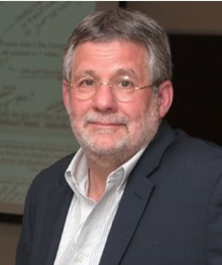
Dr. David Bloome is the EHE Distinguished Professor of Teaching and Learning and researcher in the Language, Education and Society and Adolescent, Post-Secondary and Community Literacies programs in the Department of Teaching and Learning at The Ohio State University. He is interested in how people use written language to construct knowledge and learning opportunities, to construct social relationships and social identities, to create collective memories, to connect people and events across time and space, and to improve their communities and the various "worlds" in which they live.
Bloome is interested in the potential of classroom education (preschool through high school) for connecting academic learning and local knowledge and for building communities. He is interested in the teaching and learning of reading and writing in ways that have meaning for students, their families, and their communities, and that integrate academic excellence with social justice.
He has held several leadership positions in the field of literacy research and education. These include: President of the National Council of Teachers of English, President of the National Conference on Research in Language and Literacy, co-chair AERA Division G Section 1, co-chair AERA Division C Section 9, Chair AERA Special Interest Group on Language and Social Processes. Bloome founded and co-edited the research journal, Linguistics and Education. He was the editor (with Professor Ian Wilkinson) of Reading Research Quarterly. Among the awards he has received are: The John J. Gumperz Memorial Award for Distinguished Lifetime Scholarship from the AERA Special Interest Group on Language and Social Processes (2015), the Distinguished Scholar Award from the National Conference on Research in Language and Literacy (2018), the 2006 College of Education Dean's Distinguished Scholarship Award, the AERA Division 6 Mentoring Award (2014). In 2008, he was inducted into the Reading Hall of Fame and in 2011 he was elected as a Fellow of the American Educational Research Association.
Bloome teaches courses on discourse analysis, writing in classrooms and community, language, literacy and culture, among others. He taught at the upper elementary through high school levels. Currently, he is director of the Center for Video Ethnography and Discourse Analysis and co-director of the Columbus Area Writing Project.
Bloome is interested in the potential of classroom education (preschool through high school) for connecting academic learning and local knowledge and for building communities. He is interested in the teaching and learning of reading and writing in ways that have meaning for students, their families, and their communities, and that integrate academic excellence with social justice.
He has held several leadership positions in the field of literacy research and education. These include: President of the National Council of Teachers of English, President of the National Conference on Research in Language and Literacy, co-chair AERA Division G Section 1, co-chair AERA Division C Section 9, Chair AERA Special Interest Group on Language and Social Processes. Bloome founded and co-edited the research journal, Linguistics and Education. He was the editor (with Professor Ian Wilkinson) of Reading Research Quarterly. Among the awards he has received are: The John J. Gumperz Memorial Award for Distinguished Lifetime Scholarship from the AERA Special Interest Group on Language and Social Processes (2015), the Distinguished Scholar Award from the National Conference on Research in Language and Literacy (2018), the 2006 College of Education Dean's Distinguished Scholarship Award, the AERA Division 6 Mentoring Award (2014). In 2008, he was inducted into the Reading Hall of Fame and in 2011 he was elected as a Fellow of the American Educational Research Association.
Bloome teaches courses on discourse analysis, writing in classrooms and community, language, literacy and culture, among others. He taught at the upper elementary through high school levels. Currently, he is director of the Center for Video Ethnography and Discourse Analysis and co-director of the Columbus Area Writing Project.
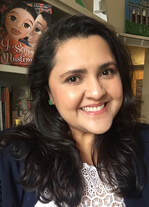
Dr. Angie Zapata is an Associate Professor of Literacy in the Department of Learning, Teaching and Curriculum at the University of Missouri. She is a longtime elementary teacher of bilingual and multilingual children, a teacher educator of undergraduate students preparing to be teachers of language and literacy in diverse, elementary settings, and advises doctoral students in Literacy Education. She teaches undergraduate, masters, and doctoral courses focused on language, literacy, identity, and literature for children and youth in both online and face-to-face settings. The research methodologies she employs are oriented towards bridging the gap between theories of humanizing pedagogies and classroom practice, including design-based experiments and collaborative teacher-researcher inquiry. Currently, she is exploring how students’ and their teachers decenter language binaries through posthumanist understandings of translingual literacy practices and text-making processes. Her most recent publications can be found in Research in the Teaching of English, Journal of Early Childhood Literacy, Handbook of Research on Teaching the English Language Arts, Language Arts, and the Journal of Children’s Literature in addition to other journals and edited books.

Dr. Carmen Medina is an Associate Professor in the Department of Literacy, Culture and Language Education at Indiana University. Her research examines literacy/biliteracy as decolonial, social and critical practices, performative pedagogies, and Latinx children's literature. For the past 10 years she has returned to Puerto Rico engaging with children and teachers in critical literacy work as emerging decolonial knowledge production at the intersection of local and transnational social issues.
She is co-author with Dr. Karen Wohlwend of Literacy, Play and Globalization: Converging Imaginaries in Children's Critical and Cultural Performances (2014) and co-editor of the volume Methodologies of Embodiment: Reinscribing bodies in qualitative research (2015) with Dr. Mia Perry.
She is co-author with Dr. Karen Wohlwend of Literacy, Play and Globalization: Converging Imaginaries in Children's Critical and Cultural Performances (2014) and co-editor of the volume Methodologies of Embodiment: Reinscribing bodies in qualitative research (2015) with Dr. Mia Perry.
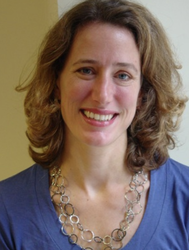
Dr. Sarah W. Beck is an Associate Professor of English Education in the Department of Teaching and Learning at NYU Steinhardt. A former teacher of English and writing at both the high school and college levels, she obtained her doctorate in Human Development and Psychology with a focus on language and literacy development from the Harvard Graduate School of Education in 2002, where she also worked in HGSE’s Teacher Education Programs as supervisor and instructor of student teachers. Since coming to NYU, she has conducted research with NYC public school students and teachers on the teaching and learning of subject-specific literacy, and the nature of academic writing. Her research interests include writing instruction and assessment, adolescent writing development; urban education; and the development of knowledge for teaching among in-service and pre-service teachers. Dr. Beck’s research has been published in Research in the Teaching of English, Educational Researcher, Journal of Literacy Research, Cambridge Journal of Education, Assessing Writing, and the Yearbook of the National Reading Conference.
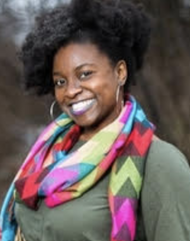
Dr. Tamara T. Butler is a Geechee girl, creative and educator. As an Assistant Professor of Critical Literacies at Michigan State, she teaches courses in the Departments of English and African American & African Studies that center memory work, placemaking/keeping, and activism. In addition to serving on the ELATE Executive Committee, she is also a member of the Womxn of Color Initiatives at Michigan State, which is a group of scholars dedicated to cultivating conversational spaces with students, faculty, staff, community members and invited women of color creatives.
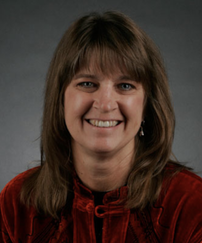
Dr. Deborah Wells Rowe is Professor of Literacy Education at Vanderbilt University. Her research focuses on understanding how preschool and elementary children learn to write in classroom settings. She is interested in preschoolers’ writing and book-related play, multimodal composing, and cultural, embodied, and spatial aspects of literacy learning in classrooms. Recently, she has explored how new technologies such as iPads can support children’s multimodal, multilingual composing.
She received her Ph.D. from Indiana University – Bloomington in 1986 with an emphasis in Language Education. She joined the faculty at Peabody College, Vanderbilt University the same year, and continues to serve as Professor of Early Childhood Education in the Department of Teaching and Learning. At Vanderbilt, Deborah teaches undergraduate courses in reading and language arts methods, and graduate courses related to literacy development, language arts instruction, qualitative research methods, and educational inquiry.
As a researcher, Dr. Rowe conducts long-term ethnographic studies in classrooms aimed at understanding how preschoolers and early primary grades students learn to write. With Sandra Wilson, she is the co-author, of the Write Start! Writing Assessment, a descriptive measure of 2- to 5-year-olds’ writing. She has recently published a report on developmental patterns in young children’s writing, based on Write Start! data collected in a longitudinal study of 2- to 5-year-olds in two urban childcare centers. Other interests include the role of gesture in supporting very young children’s first attempts at writing.
In 2010, Dr. Rowe received the International Reading Association’s Dina Feitelson Research Award for her article “The social construction of intentionality: Two-year-olds' and adults' participation at a preschool writing center” (2008, Research in the Teaching of English). This award recognizes an outstanding empirical investigation of literacy acquisition.
She received her Ph.D. from Indiana University – Bloomington in 1986 with an emphasis in Language Education. She joined the faculty at Peabody College, Vanderbilt University the same year, and continues to serve as Professor of Early Childhood Education in the Department of Teaching and Learning. At Vanderbilt, Deborah teaches undergraduate courses in reading and language arts methods, and graduate courses related to literacy development, language arts instruction, qualitative research methods, and educational inquiry.
As a researcher, Dr. Rowe conducts long-term ethnographic studies in classrooms aimed at understanding how preschoolers and early primary grades students learn to write. With Sandra Wilson, she is the co-author, of the Write Start! Writing Assessment, a descriptive measure of 2- to 5-year-olds’ writing. She has recently published a report on developmental patterns in young children’s writing, based on Write Start! data collected in a longitudinal study of 2- to 5-year-olds in two urban childcare centers. Other interests include the role of gesture in supporting very young children’s first attempts at writing.
In 2010, Dr. Rowe received the International Reading Association’s Dina Feitelson Research Award for her article “The social construction of intentionality: Two-year-olds' and adults' participation at a preschool writing center” (2008, Research in the Teaching of English). This award recognizes an outstanding empirical investigation of literacy acquisition.

Dr. Chris Goering is a Professor, Co-Coordinator of English Education and Drama/Speech Education, Director of the Northwest Arkansas Writing Project and Faculty Director of Center for Children and Youth at the University of Arkansas. He began his career in higher education at the University of Arkansas in 2007 upon receiving a Ph.D. in Curriculum and Instruction from Kansas State University. Prior, he taught high school English and leadership courses at Washburn Rural High School in Topeka, Kansas. He writes about how English teachers use music in their teaching and education policy. He's currently the Chair of the English Language Arts Teacher Educators and holds a faculty affiliation with the Interdisciplinary Ph.D. program in Public Policy. In 2016, Goering was elected as a Fellow of the University of Arkansas Teaching Academy and also successfully renewed his NBCT license in English Language Arts. In 2019, Goering's co-edited book received the Divergent Award for Excellence in 21st Century Literacies Research and his collaborative work with the Center for Children and Youth was acknowledged with the Governor's Arts Award for Arts in Education.
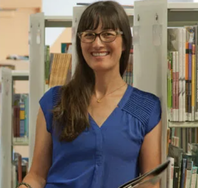
Dr. Michiko Hikida is an assistant professor of Reading and Literacy for Early and Middle Childhood in the Department of Teaching and Learning at The Ohio State University. Born and raised in New Mexico, Hikida received her education from the University of Texas-Austin. She was a practicing elementary school teacher where equity and inclusion were central to her philosophy and practice.
As a literacy researcher, she focuses on classroom literacy practices for students whose experiences put them at the intersection of race, language, and ability profiling. Because she draws on her experiences as a former teacher, it is important to her to continually highlight and build on what teachers and students are doing right. This is all in an effort to make schools more humane and loving spaces for all students, especially those who have been marginalized.
As a professor of literacy teacher education, she hopes to support preservice teachers to see teaching and learning as the intellectual work in which caring for students is the motivator. She hopes to equip young teachers with the confidence and methods to facilitate students’ growth as independent and strategic readers and writers.
As a literacy researcher, she focuses on classroom literacy practices for students whose experiences put them at the intersection of race, language, and ability profiling. Because she draws on her experiences as a former teacher, it is important to her to continually highlight and build on what teachers and students are doing right. This is all in an effort to make schools more humane and loving spaces for all students, especially those who have been marginalized.
As a professor of literacy teacher education, she hopes to support preservice teachers to see teaching and learning as the intellectual work in which caring for students is the motivator. She hopes to equip young teachers with the confidence and methods to facilitate students’ growth as independent and strategic readers and writers.
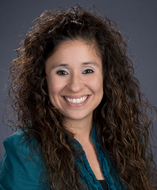
Dr. Tracy Flores is an assistant professor of Language and Literacy at University of Texas at Austin. She is a former English Language Development (ELD) and English Language Arts (ELA) teacher, working for eight years alongside culturally and linguistically diverse students, families and communities in schools throughout Glendale and Phoenix, Arizona. Her research focuses on Latina mothers and daughters language and literacy practices and on family literacy, specifically family writing, as a springboard for advocacy, empowerment, and transformation for students, families, and teachers.
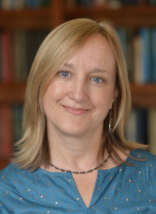
Dr. Marjorie Faulstich Orellana is a Fellow of the Sudikoff Family Institute for Education & New Media, an initiative that supports the public engagement of faculty at UCLA’s Graduate School of Education & Information Studies. Professor Faulstich Orellana’s work examines the daily life experiences of the children of immigrants in urban schools and communities, and places particular emphasis on children’s work as language and culture brokers for their families. Her research has aimed at communicating a greater understanding of the broad range of ways in which bilingual children use their knowledge of two languages to mediate information for others. Her book, “Translating Childhoods: Immigrant Youth, Language and Culture” (Rutgers University Press 2009), explores the role that immigrant children play as language brokers at home, school, and in public places. Professor Orellana’s interest in children, language, literacy, migration, and social justice took hold while working as a bilingual third grade public school teacher in Los Angeles from 1983-1993. Prior to joining the faculty of UCLA’s Graduate School of Education & Information Studies in 2003, Prof. Orellana served on the faculty of the School of Education & Social Policy at Northwestern University. A graduate of Brown University, she completed her graduate studies and earned her Ph.D. at the University of Southern California in 1994.
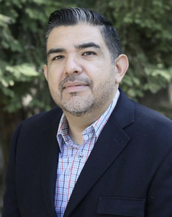
Dr. Danny Martinez is an Assistant Professor in the School of Education at the UC Davis. In 2014, he was selected as a Concha Delgado Gaitan Presidential Fellow by the Council on Anthropology and Education. This early career fellowship is intended to support professional development and mentoring in the field of educational anthropology. He published numerous articles, including “Re-mediating literacy: Culture, difference, and learning for students from non-dominant communities” (2009) and “Toward a teacher solidarity lens: former teachers of color (re) envisioning educational research” (2014).

Dr. Patricia Enciso is professor of Literature for Children and Young Adults in the Department of Teaching and Learning at The Ohio State University. She also is affiliated with the Adolescent, Post-Secondary and Community Literacies; Dramatic and Arts-based Research in Teaching and Learning; and Language, Education and Society specializations. Her research and teaching grow out of a lifelong interest in the ways drama, the arts and literature contribute to more equitable relations and deeper understanding, across texts, among people and within institutions.
As a fourth/fifth grade classroom teacher and co-teacher/researcher in language arts middle grade classrooms, she has more than 20 years of experience in teaching literature in school settings. Her research focuses on youth and teachers’ understanding and practices of equity, imagination and engagement in literary reading and everyday storytelling. She has been awarded funding and recognition by the Spencer Foundation, NCTE and the Literacy Research Association. She also is an active leader in the literacy research field, serving as past chair of the NCTE Research Foundation, co-editor of Language Arts and as a past president of the Literacy Research Association. She is co-editor of The Handbook of Research on Children’s and Young Adult Literature (2011), and Reframing Sociocultural Theory in Literacy Research: Identity, Agency & Power (2007).
As a fourth/fifth grade classroom teacher and co-teacher/researcher in language arts middle grade classrooms, she has more than 20 years of experience in teaching literature in school settings. Her research focuses on youth and teachers’ understanding and practices of equity, imagination and engagement in literary reading and everyday storytelling. She has been awarded funding and recognition by the Spencer Foundation, NCTE and the Literacy Research Association. She also is an active leader in the literacy research field, serving as past chair of the NCTE Research Foundation, co-editor of Language Arts and as a past president of the Literacy Research Association. She is co-editor of The Handbook of Research on Children’s and Young Adult Literature (2011), and Reframing Sociocultural Theory in Literacy Research: Identity, Agency & Power (2007).

Dr. Cassie Brownell is an assistant professor in the Department of Teaching and Learning at the Ontario Institute for Studies in Education within the University of Toronto. She received her doctorate in Curriculum, Instruction, and Teacher Education--with a language and literacies specialization and certificates in qualitative research and urban education--from Michigan State University in 2018. Originally from Montana, Brownell graduated from Marquette University in Milwaukee, Wisconsin in 2008 with a B.A. in Social Welfare and Justice and a minor in Justice and Peace Studies. She began her career in education as an early childhood teacher in post-Katrina New Orleans. While teaching, she obtained a Master of Elementary Education (K-6) as well as a special education certificate from the University of Notre Dame. As an interdisciplinary scholar, her research critically considers the politics of identity, literacies, and civics in contemporary schooling. In my role as a teacher educator, she seeks to create active engagement opportunities by challenging students to interrogate the histories of their home, current, and future communities, and to engage civically in their local communities.

Dr. Ah-Young Song is a Visiting Assistant Professor at Vassar College, where she teaches courses on adolescent literacy, elementary reading, special education, and multiliteracies. She is a 2018-2020 NCTE Cultivating New Voices fellow and a former high school English teacher who has taught in Taiwan, South Korea, and New England. As a youth-oriented researcher, she primarily works with out-of-school programs that build students' capacities for self-expression and community involvement. Her current research projects involve the examination of online education and mixed-age learning environments that center multiliteracies.
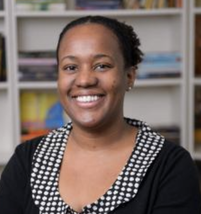
Dr. E. Sybil Durand is an assistant professor in English education in the Department of English at Arizona State University. Her scholarship is grounded in post-colonial and curriculum theories, which situate literature and education at the intersections of sociocultural, historical, political, and national contexts. Her research focuses on representations of youth of color in young adult literature, including multicultural, international, and postcolonial young adult texts, and how teachers and students engage such narratives. Her current study examines how middle school students engage young adult literature in the context of a Youth Participatory Action Research after-school program.